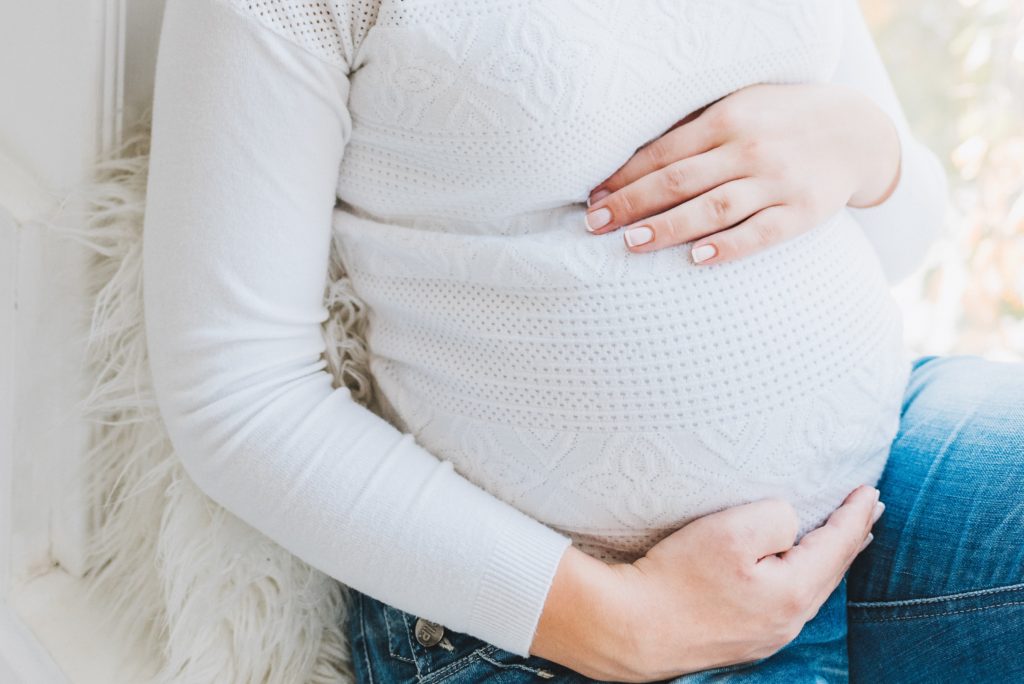Until now, the impacts of maternal cannabis use on offspring were unknown. For this reason, researchers at the Icahn School of Medicine at Mount Sinai and the City University of New York (CUNY) conducted the first long-term study on the subject. Observations were made when children were six years of age and revealed a number of potential impacts on the cardiac and immune systems.
Study: Maternal Cannabis Use May Predispose Babies to Stress and Anxiety


According to New York researchers, women who engage in maternal cannabis use to relieve stress and anxiety may inadvertently predispose their babies to both conditions.
This is just one of many new studies targeted at discovering the properties and effects of cannabis in humans. We cover many more in our free-to-download cannabis news app.
Long-Term Cannabis Study Investigates Maternal Cannabis Use
Researchers at the Icahn School of Medicine at Mount Sinai and the City University of New York (CUNY) assumed that “the impact of maternal cannabis use on fetal and infant development is unclear.
So they examined placental gene expression and the behavior and physiology of young children in a long-term study of 322 mother-child pairs, all from an ongoing study of stress during pregnancy.
At about age six, hair samples from the children were collected to measure hormone levels, electrocardiogram recordings were used to assess their heart function under stressful conditions, and parental surveys were conducted to determine their behavior and emotional functioning.
The Effects of Maternal Cannabis Use
Compared to children of non-cannabis users, children of mothers who used cannabis during pregnancy had higher anxiety, aggression, hyperactivity, and levels of the stress hormone cortisol.
In addition, exposure was associated with a reduction in the high-frequency component of the variation in the time interval between heartbeats, and for a subset of participants, RNA sequencing of placental tissue collected at birth “revealed that maternal cannabis use was associated with lower expression of immune-activating genes,” which help provide protection against pathogens.
“Cannabis-related suppression of several placental immune gene networks predicted greater anxiety in offspring,” the university reports.
Results Are Not Definitive: More Work Is Needed
“Future studies are needed to examine the effects of cannabis on immune function during pregnancy as a potential regulatory mechanism for neurobehavioral development,” the authors write in the maternal cannabis use study’s abstract. Yoko Nomura, first author of the paper and a professor of psychology at CUNY, said in the university’s release that cannabinoids have been shown to play a role in stress modulation.
That said, “our study shows that in utero exposure to cannabis has the opposite effect on children, causing them to exhibit increased levels of anxiety, aggression, and hyperactivity compared to other children who were not exposed to cannabis during pregnancy,” Nomura reports.
Potency of Today’s Cannabis May Increase Effects of Maternal Cannabis Use
Because cannabis is more potent than it was a few decades ago, “our results indicate that its use during pregnancy may have a long-term impact on children,” notes Yasmin Hurd, Ph.D., lead author of the paper on maternal cannabis use, and director of the Mount Sinai Institute of Addictions.
“The maternal cannabis use study results underscore the need for unbiased education and awareness of the public and certain vulnerable populations of pregnant women regarding the potential impact of cannabis use,” Hurd adds.
__
(Featured image by Anastasiia Chepinska via Unsplash)
DISCLAIMER: This article was written by a third-party contributor and does not reflect the opinion of Hemp.im, its management, staff, or its associates. Please review our disclaimer for more information.
This article may include forward-looking statements. These forward-looking statements generally are identified by the words “believe,” “project,” “estimate,” “become,” “plan,” “will,” and similar expressions. These forward-looking statements involve known and unknown risks as well as uncertainties, including those discussed in the following cautionary statements and elsewhere in this article and on this site. Although the Company may believe that its expectations are based on reasonable assumptions, the actual results that the Company may achieve may differ materially from any forward-looking statements, which reflect the opinions of the management of the Company only as of the date hereof. Additionally, please make sure to read these important disclosures.
First published in newsweed, a third-party contributor translated and adapted the article from the original. In case of discrepancy, the original will prevail.
Although we made reasonable efforts to provide accurate translations, some parts may be incorrect. Hemp.im assumes no responsibility for errors, omissions or ambiguities in the translations provided on this website. Any person or entity relying on translated content does so at their own risk. Hemp.im is not responsible for losses caused by such reliance on the accuracy or reliability of translated information. If you wish to report an error or inaccuracy in the translation, we encourage you to contact us.



Comments are closed for this post.